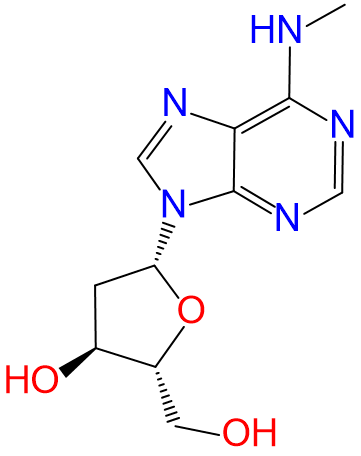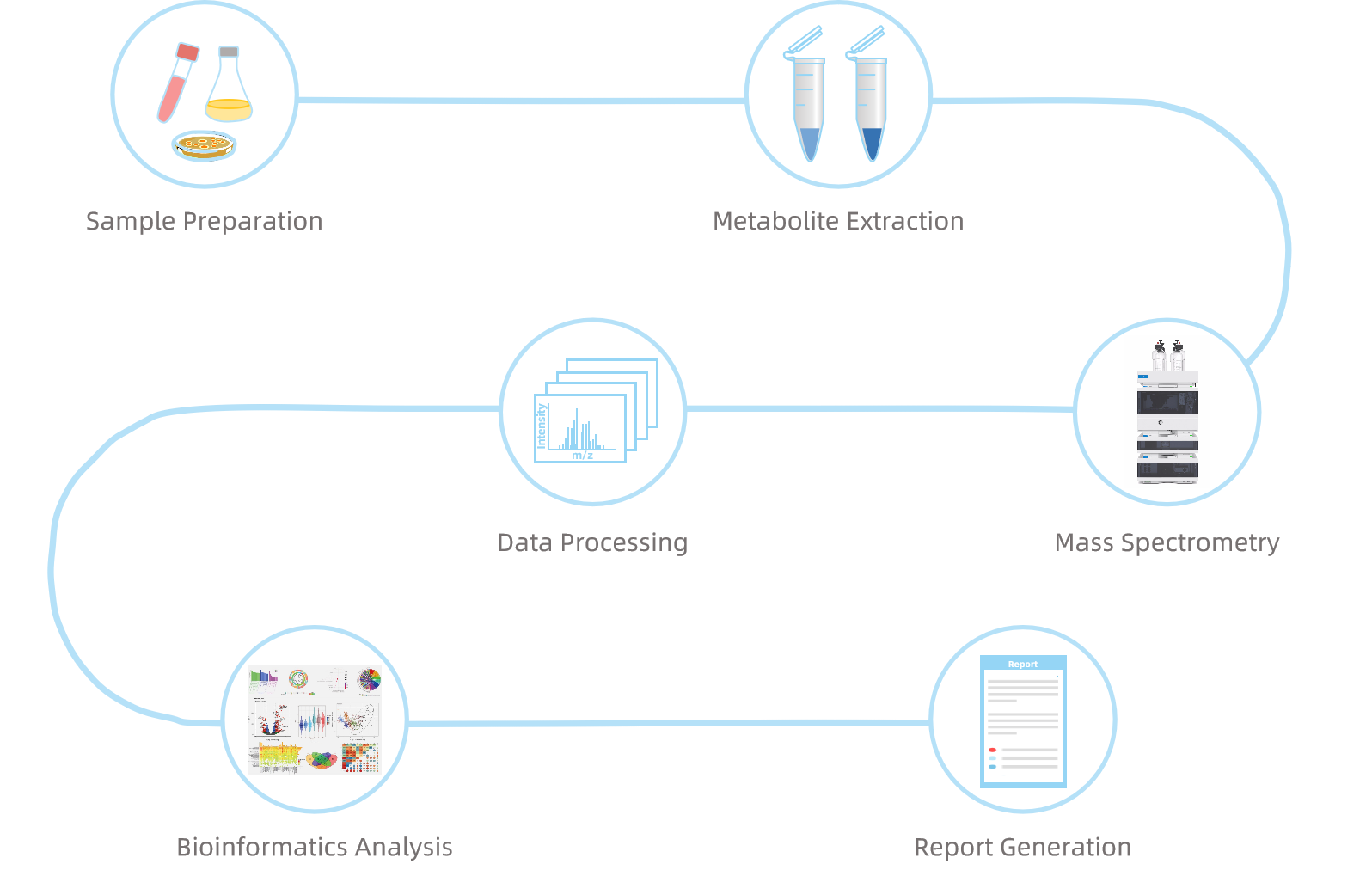N6-methyl-2'-deoxyadenosine Analysis Service
- State-of-the-art mass spectrometry platforms
- Professional standard operating procedure
- Highly sensitive and reliable analysis
- Rapid turnaround time and competitive pricing
- Customized service
- Biomarker Discovery: Investigate the potential role of m6dA as a biomarker in various diseases.
- Mechanistic Studies: Understand the role of m6dA in gene regulation, DNA repair and cell proliferation.
- Therapeutic Development: Investigate the potential of m6dA modulating enzymes for therapeutic intervention.
- Animal tissue ≥ 100 mg
- Plant tissue ≥ 200 mg
- Serum/ Plasma ≥ 200 μL
- Urine ≥ 2 mL
N6-methyl-2'-deoxyadenosine (m6dA) is a DNA modification identified in multiple organisms, from prokaryotes to eukaryotes. m6dA is a methylated form of deoxyadenosine where a methyl group is added to the nitrogen at the 6th position of the adenine base. It is reported to play significant roles in cell proliferation, DNA repair, gene expression and regulation, and other biological processes. The level of m6dA is dynamically regulated by methyltransferases and demethylases under physiological and pathological conditions. This modification plays a crucial role in the regulation of gene expression, DNA replication, and genome stability. In prokaryotes, m6dA is well-known for its function in DNA methylation systems, which protect against viral infection and play a role in DNA mismatch repair. In eukaryotes, however, m6dA has only recently gained attention for its regulatory roles in complex biological processes.

Figure 1. The Structure of N6-methyl-2'-deoxyadenosine
The study of m6dA in higher organisms has revealed its potential involvement in gene regulation, particularly in modulating transcriptional activity and influencing chromatin structure. This modification may act as a heritable mark, regulating gene expression patterns across generations, similar to the well-established 5-methylcytosine (5mC). Moreover, m6dA has been associated with various developmental processes, including embryogenesis and tissue differentiation, as well as cellular responses to environmental stressors.
Growing evidence suggests that dysregulation of m6dA can contribute to various diseases, including cancer and neurodegenerative disorders. For example, altered m6dA patterns have been observed in certain cancers, indicating its potential role in oncogenesis. The ability to accurately measure and profile m6dA is therefore crucial for understanding its biological functions and its implications in health and disease.
At MtoZ Biolabs, we utilize High-Performance Liquid Chromatography-Tandem Mass Spectrometry (HPLC-MS/MS) technology for the analysis of N6-methyl-2'-deoxyadenosine, providing a comprehensive service package from sample preparation, LC separation, MS detection to data analysis. Our team of experts are dedicated to providing reliable, fast, and affordable N6-methyl-2'-deoxyadenosine analysis service to assist your studies.
Analysis Workflow

Service Advantages
Applications
Sample Submission Requirements
1. Sample Types
Serum, plasma, urine, tissues, and other biological samples.
2. Sample Volume
3. Storage and Shipping
Samples should be stored at -80℃ and shipped with dry ice.
Note: Please provide details on sample collection and handling.
Deliverables
1. Experimental Procedures
2. Relevant Liquid Chromatography and Mass Spectrometry Parameters
3. Detailed Information on N6-methyl-2'-deoxyadenosine
4. Raw Data
5. Custom Analysis Report
For more information, please contact our customer service. We look forward to assisting you in your research.
How to order?







